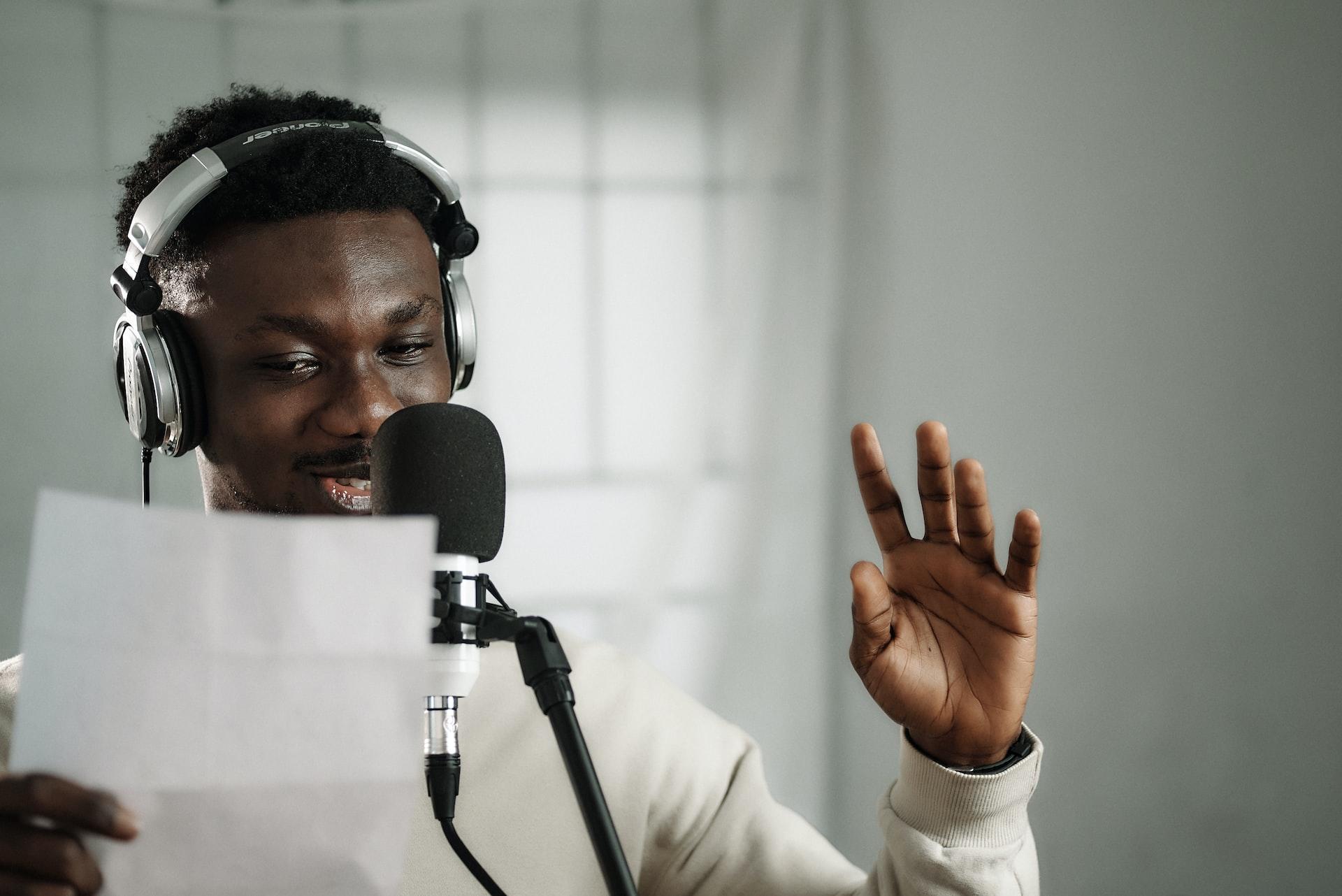In the world of voice arts, there are very particular ways of referring to certain things. Words that mean almost the same thing to a layperson can mean very different things to those who know about using their voice.
A piano might not be an instrument, bleed is not a medical emergency, and timbre isn’t someone making a typo about the lumber yard.
Even within the voice arts community- singers, voice actors, announcers, narrators, orators, and more- there can be some confusion about the exact definition of certain things.
In this instance, we are talking about the differences between coaches, teachers, and instructors as well as the differences between a singing coach/teacher/instructor, a voice coach/teacher/instructor, and a vocal coach/teacher/instructor.

The Differences Between Teachers, Coaches and Instructors
In some spaces, teacher, coach and instructor can be used almost interchangeably. Even if you use the wrong word, the people you’re talking to will probably understand your meaning.
When looking to hire someone to help you in your voice arts journey, however, it’s important to know exactly what you want and need as well as what that person is actually offering!
Teacher
A teacher pedagogically imparts technical knowledge to their students.
This means that they teach things that apply to all people in the given group or field.
In the case of voices, a teacher will convey the general knowledge about how voices work, how singing works, the vocal cords, how to read sheet music, background information about music or the history of a genre or piece, and other general things like this.
You can think of a teacher as the person who gets you familiarized with the concepts you need in order to have a strong foundation. Without that foundation, it will be hard to build your talent, skill, and career.
A teacher can specialize in things like the history of music, the history of voice acting, voice and music theory, tonality, ear training, arrangement, theatre, podcasting, speech writing, public speaking, and so on.
A teacher might teach solo or group classes. Their main goal is to leave students with an understanding of the subject as a whole.
Coach
A coach typically works with an individual, and their aim is to help this individual reach a goal.
This might be preparing for a project or a role, working to perfect a voice technique, nailing down speaking cadence, or another specific milestone that the student can aim for.
They provide personalized preparation techniques like breathing and vocal exercises. Coaches take into consideration their students’ unique anatomy, preferences, talents and skills, and other individual traits.
They can suggest specific songs, speeches, or other materials that best suit the student.
A coach can help develop skills like range, articulation, projection, musical phrasing, and performance practice. They want to help the student develop the attitude and ability required to “own” what they are singing or saying.
They might also help you learn to sing while playing an instrument like a guitar.
When I first started out, being from the South and going to New York or Chicago, people kept telling me to get voice lessons and 'lose that stupid accent you got.' And I'm like, 'Well, where I come from, you have the stupid accent.'
-Jeff Foxworthy
Instructor
Instructors are often thought of to be synonymous with teachers. In some cases this is true, but at certain times they have slightly different job descriptions.
Where a teacher focuses on overall knowledge of a subject, an instructor focuses on specific knowledge of one area.
They are like a teacher who specializes in a more focused subject.
Where a teacher might teach “music history,” an instructor might teach “history of Mozart” or “history of jazz.”
Overlap
Here is the tricky part: Many of these jobs can overlap, and the same person can do more than one job at once.
A teacher can also be a coach and an instructor. A coach can also be a teacher. An instructor can also be a coach. And any other combination.
Some people specialize in only teaching, coaching, or instructing. Some people do it all. Some people believe they are a teacher when they are actually a coach.
It’s not that they have ill intent, it’s that the definitions are confusing!
Find your perfect instructor for singing lessons Brisbane here on Superprof!

The Different Types of Coaches, Teachers and Instructors
Continuing the theme of very specific definitions, we now divide up the different vocal arts.
A singing teacher and a voice acting teacher are two very different teachers. If you are looking to become a singer or a voice actor, the division is easy to understand and you know exactly which one you should be looking for.
But what if you do a little of everything? Or perhaps you do something that isn’t based on your voice but having a better voice would help you be more effective.
Which specialization should you seek?
Singing Teachers, Coaches, and Instructors
Singing is different enough from the vocal and voice realms that it’s relatively easy to know if this is the right type of person you should be looking for.
Singing teachers, coaches and instructors are able to help you specifically with singing and music.
You can find different specialties within this world like classical, modern, choral, solo, pop, rap, opera, anthropological, theoretical, and any other aspect of singing music you can think of.
Vocal Teachers, Coaches, and Instructors
A vocal teacher, coach or instructor (let’s shorten that to TCI) can help you prepare for a specific goal. They typically have intermediate to advanced piano skills so they can accompany you as you practice.
If you have a piece of music, an audition, or a speech coming up, the vocal TCI can help ensure that that specific piece is perfected.
They might help you develop your character and motivation, not unlike an acting coach, in order for you to be able to deliver a stronger performance.
While they can help you with the why and the what, they are not as concerned with the how. Meaning, a vocal TCI can identify what you are preparing for, and the real-life why and the acting why, but they might not be able or interested in addressing how you will achieve the desired outcome.
They might not be as careful with how to use your voice utilising methods that protect the cords, they just want you to hit your mark.
Find the perfect TCI for your needs when you look for singing lessons here on Superprof.

Voice Teachers, Coaches, and Instructors
A voice TCI is concerned with your individual voice.
They want you to be able to understand your own anatomy and capabilities as well as how to take care of your instrument: yourself.
A voice TCI will be more interested in ensuring you can tune your voice to get it to do what you want, whether that be singing or speaking or anything in between.
Working with a voice TCI can help you gain range in your singing and speaking voice, gain control and show attitude or more emotion, and be able to whisper, scream, or shout without damaging your vocal cords.
They can also help you learn how to pronounce things for the best inflection or effect.
Overlap
Once again, there is a significant amount of overlap for these jobs!
Some individuals may focus only on one specific thing, but it’s also common for a TCI to meld aspects of all these ideas together.
Though each category is coming from a slightly different angle, all of them have to do with improving knowledge and performance.

Who Needs a Teacher, Coach or Instructor?
The most obvious candidate for a TCI is a beginner.
Starting a new hobby or career is difficult, and in the artistic world, it can be even more challenging.
If you feel unsure of yourself and aren’t making any headway on your own, it’s a good idea to enlist the help of a singing, vocal, or voice TCI to set you in the right direction.
The people who most often utilise singing, vocal, or voice TCIs are:
- Opera singers
- Solo singers
- Band singers
- Actors
- Voiceover artists
- Voice actors
- Narrators
- Audiobook readers
- Podcasters
- Public speakers
- TV hosts and news anchors
- Salespeople
- Motivational speakers
- Life and fitness coaches
- Lawyers
- Politicians
- Mediators
- Storytellers

Finding Teachers, Coaches and Instructors at Different Stages of Your Career
It’s possible that at different points in your career, you’ll find yourself needing a TCI.
After learning what you need in order to move on from beginner to intermediate, you may have gone without any outside help for some time while you figure out other aspects of your career.
But as time goes on, you might find that you need to work on a specific skill or prepare for a specific performance.
Even experts use TCIs, and sometimes quite regularly!
If you feel like you are plateauing, that you need better vocal hygiene, or you just want someone to be there for you, seeking out a TCI is a good idea.
Summary
There has been a lot of overlapping knowledge covered here today! Check out these cheatsheets for the basic ideas behind these concepts.
Different Types of Knowledge Providers
Teacher
Range of Expertise: Broad subject
Types of Skills Taught: General knowledge
Instructor
Range of Expertise: Focused area
Types of Skills Taught: Specialised knowledge
Coach
Range of Expertise: Individual student
Types of Skills Taught: Personal knowledge
Different Types of Teachers, Coaches, and Instructors (TCIs)
Singing
What they teach: Music
Vocal
What they teach: Performance preparation
Voice
What they teach: Instrument (voice and body) technical skills
Whatever your individual needs are, you can be sure that there is a perfect match for you out there. By taking lessons with your TCI, you can achieve more with your voice than you thought possible!
Find the perfect TCI to teach you to hone your voice and more with in-person or online singing lessons on Superprof!
Summarise with AI:
















